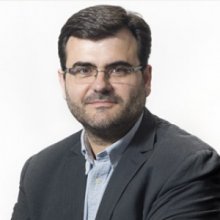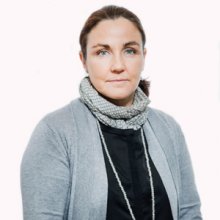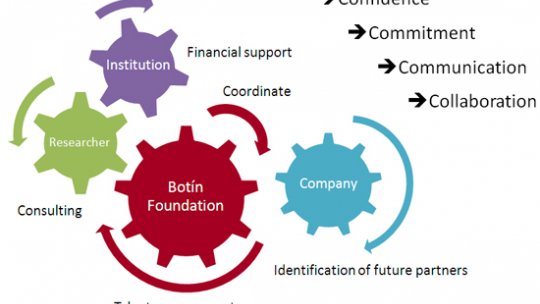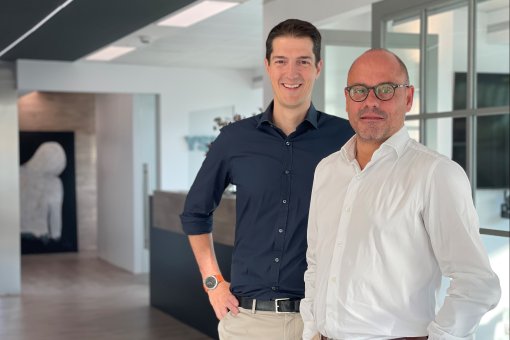Images
Participants



Contact

• The “Mind the Gap” programme selects Eduard Batlle and Elena Sancho to develop a diagnostic kit for patients at risk for metastasis, and Modesto Orozco to create a drug design platform.
• The IRB Barcelona projects, two of the three chosen by the Foundation, will receive one million euros of funding as well as management, coordination and consulting support for two years.
• An international committee of experts in investment strategies for biotechnology and biomedicine praise the high potential for innovation and viability of the projects.
The Botín Foundation will help establish two technology business projects at the Institute for Research in Biomedicine (IRB Barcelona) as part of their programme “Mind the Gap”. The first is an innovative test to identify colorectal cancer patients at risk of developing metastasis; the second is a a drug-design simulation platform which aims to reduce the need for clinical trials. The projects led by Eduard Batlle and Elena Sancho, and Modesto Orozco, respectively, account for two of the three projects that the Botín Foundation has chosen to support due to their innovativeness and likelihood to reach the market. The projects received the approval of a prestigious international committee of experts in investment strategies for the biotechnology and biomedicine industries.
The Foundation will invest a total of one million euros to set up the spin-off companies, and will also offer them management, coordination and consulting support to ensure that in two years’ time, the companies can attract venture capital funding and allow their products to reach the market.
The goal of the “Mind the Gap” programme is to bring the worlds of science and business together to ensure that important research findings with commercial potential reach the market in the form of services or products that improve the health and well-being of society.
COLOSTAGE
ICREA Research Professor at IRB Barcelona, Eduard Batlle, head of the Colorectal Cancer Lab, and Research Associate in the same lab, Elena Sancho, are behind the project COLOSTAGE. The goal is to develop an innovative test that can identify the properties of colorectal cells that allow them to metastasize. The test will allow physicians to identify those patients who should undergo chemotherapy, those for whom it would be unnecessary, and will also optimize drug use.
The project arises from the basic research conducted in the lab led by Dr. Batlle, the results of which were published in last November’s issue of the scientific journal Cancer Cell.
NOSTRUM DRUG DISCOVERY
The second IRB Barcelona project selected by the Botín Foundation is led by Modesto Orozco, head of the Molecular Modeling and Bioinformatics Lab. Orozco, who is also Professor at the University of Barcelona and director of the Life Sciences Programme at the Barcelona SuperComputing Center, will launch the project “Nostrum Drug Discovery” in collaboration with the Barcelona SuperComputing Center-National Supercomputing Center (BSC-CNS).
“Nostrum Drug Discovery” is a bioinformatics simulator which will help scientists to design drugs reducing the need for clinical trials. This new approach could potentially lead to savings in time and costs of up to 40 million euros per drug, roughly 10% of the total development costs for each new product.
TECH TRANSFER AT IRB BARCELONA
In 2009 IRB Barcelona set up its Department of Innovation in order to protect, develop and commercialize the discoveries and inventions of researchers at the institute, thereby guaranteeing that the knowledge generated at IRB Barcelona is placed at the benefit of society. The Department identifies those projects with the greatest potential to respond to society’s real demands, and prepares and protects them so that they can be offered in the form of licenses, spin off companies, or collaborations with other centers. Since its creation in 2005, IRB Barcelona has already created three spin-off companies: Omnia Molecular, Iproteos and Inbiomotion.
About IRB Barcelona
The Institute for Research in Biomedicine (IRB Barcelona) pursues a society free of disease. To this end, it conducts multidisciplinary research of excellence to cure cancer and other diseases linked to ageing. It establishes technology transfer agreements with the pharmaceutical industry and major hospitals to bring research results closer to society, and organises a range of science outreach activities to engage the public in an open dialogue. IRB Barcelona is an international centre that hosts 400 researchers and more than 30 nationalities. Recognised as a Severo Ochoa Centre of Excellence since 2011, IRB Barcelona is a CERCA centre and member of the Barcelona Institute of Science and Technology (BIST).




